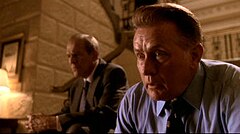The West Wing is an American political drama television series created by Aaron Sorkin that was originally broadcast on NBC from September 22, 1999, to May 14, 2006. The series is set primarily in the West Wing of the White House, where the Oval Office and offices of presidential senior personnel are located, during the fictional two-term Democratic administration of President Josiah Bartlet.

Josiah Edward "Jed" Bartlet is a fictional character from the American television serial drama The West Wing created by Aaron Sorkin and portrayed by actor Martin Sheen. The role earned Sheen a Golden Globe Award for Best Actor – Television Series Drama in 2001, as well as two SAG Awards.

Leo Thomas McGarry is a fictional character of the NBC political drama series The West Wing, portrayed by American actor John Spencer.
Samuel Norman Seaborn is a fictional character played by Rob Lowe on the television serial drama The West Wing. From the beginning of the series in 1999 until the middle of the fourth season in 2003, he is deputy White House Communications Director in the administration of President Josiah Bartlet played by Martin Sheen. The character departed from subsequent seasons after Lowe decided to leave the series, although he returned for several episodes in the final season when he became Deputy Chief of Staff to the new president portrayed by Jimmy Smits.

Tobias "Toby" ZacharyZiegler was a fictional character in the television serial drama The West Wing, played by Richard Schiff. The role of Toby Ziegler earned actor Richard Schiff the Primetime Emmy Award for Outstanding Supporting Actor in a Drama Series in 2000. For most of the series' duration, he was White House Communications Director. In the final season, Ziegler was involved in a storyline around a leak of classified information, which The New York Times compared to the leak investigation of the Valerie Plame affair.
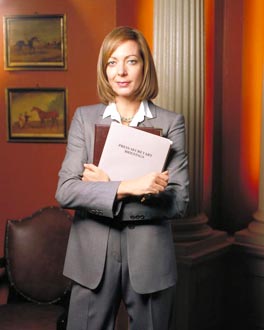
Claudia Jean Cregg is a fictional character played by Allison Janney on the American television drama The West Wing. From the beginning of the series in 1999 until the sixth season in 2004, she was the White House Press Secretary in the administration of President Josiah Bartlet. After that, she serves as the president's chief of staff until the end of the show in 2006. The character is partially inspired by real-life White House Press Secretary Dee Dee Myers, who worked as a consultant on the show.

Charles Young is a fictional character played by Dulé Hill on the television serial drama The West Wing. For the majority of the series, he is the Personal Aide to President Josiah Bartlet.

"What Kind of Day Has It Been" is the 22nd episode of The West Wing, the season finale of the show's first season. It originally aired on NBC on May 17, 2000. Events circle around the attempted rescue of a US fighter pilot in Iraq, and the president taking part in a town hall meeting in Rosslyn, Virginia. The episode was written by Aaron Sorkin and directed by Thomas Schlamme. "What Kind of Day Has It Been" is also the name of the first-season finales of both the series Sports Night and Studio 60 on the Sunset Strip, as well as the series finale of The Newsroom, all of which were created by Aaron Sorkin. It was also a quote by Leo in the fourth-season episode "Commencement" in the situation room. Sorkin claimed that he took the phrase from Robert Whitehead, lead producer of Sorkin's A Few Good Men, who used to start meetings at the end of rehearsal days by asking this question.
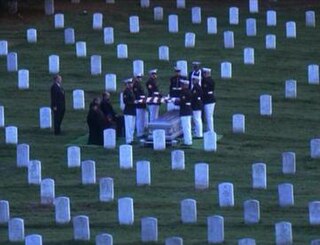
"In Excelsis Deo" is the tenth episode of the first season of The West Wing. It originally aired on NBC on December 15, 1999, as the show's Christmas special. Events circle around Toby Ziegler getting involved in the fate of a dead Korean War veteran, reactions to a severe hate crime, and the ongoing controversy surrounding Leo's past alcohol and prescription drug abuse. Written by Aaron Sorkin and Rick Cleveland and directed by Alex Graves, the episode contains guest appearances by Paul Austin and Raynor Scheine. It earned Sorkin and Cleveland the Primetime Emmy Award for Outstanding Writing for a Drama Series, as well as one for Richard Schiff.
"Celestial Navigation" is the fifteenth episode of the first season of the American serial political drama The West Wing. The episode aired on February 16, 2000 on NBC. The episode depicts Josh Lyman narrating a story from the past few days to a collegiate audience, as well as the President's nominee to the Supreme Court being arrested for drunk driving. The episode was widely regarded as lighter and more humorous than other episodes of The West Wing.
"Two Cathedrals" is the 44th episode and second season finale of The West Wing. It was first broadcast on May 16, 2001, on NBC.

"On the Day Before" is the forty-eighth The West Wing episode and fourth of the third season. It originally aired on NBC on October 31, 2001. The episode deals with a suicide bomber in Jerusalem, as well as continued negotiations over the estate tax. Written by Aaron Sorkin, Paul Redford, and Nanda Chitre, and directed by Christopher Misiano, the episode contains the first appearances by H. Richard Greene as Congressman Robert Royce and Thomas Kopache as Assistant Secretary of State Bob "Bobby" Slatterly. There are also guest appearances by Kevin Tighe, Cliff DeYoung and Mary Mara. Janel Moloney was nominated for an Emmy Award for her performance in this episode.
"The Supremes" is the seventeenth episode of the fifth season of American serial political drama television series The West Wing. It originally aired on NBC on March 24, 2004. In "The Supremes", the White House senior staff, under Democratic President Josiah Bartlet, looks to nominate a judge to the Supreme Court of the United States when Josh comes up with a plan to, instead of nominating a centrist to the seat, nominate one liberal and one conservative candidate to two seats on the Court. The episode was met with mixed reception, although it was later noted the show bore similarities to the 2016 death and replacement of real-life Supreme Court Justice Antonin Scalia.

The first season of the American political drama television series The West Wing aired in the United States on NBC from September 22, 1999, to May 17, 2000, and consisted of 22 episodes.
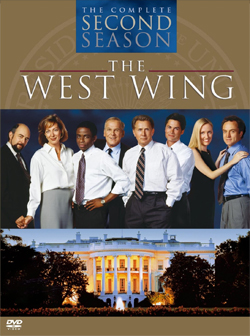
The second season of the American political drama television series The West Wing aired in the United States on NBC from October 4, 2000 to May 16, 2001 and consisted of 22 episodes.
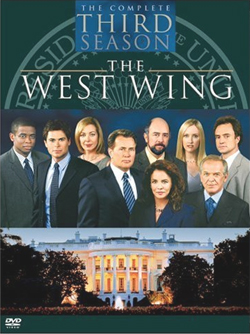
The third season of the American political drama television series The West Wing aired in the United States on NBC from October 3, 2001 to May 22, 2002 and consisted of 21 episodes and 2 special episodes.

The fourth season of the American political drama television series The West Wing aired in the United States on NBC from September 25, 2002 to May 14, 2003 and consisted of 23 episodes.

The fifth season of the American political drama television series The West Wing aired in the United States on NBC from September 24, 2003, to May 19, 2004, and consisted of 22 episodes. This was the first season with executive producer John Wells as showrunner after series creator Aaron Sorkin departed the series at the end of the previous season.
"17 People" is the eighteenth episode of the second season of American serial political drama The West Wing. The episode aired on April 4, 2001 on NBC. The episode depicts Josiah Bartlet, the President of the United States, informing his aide Toby Ziegler of startling news about the President's condition, as well as other members of the cast trying to rewrite a humorous speech the President is to give. The episode was generally praised for its intensity, as well as its complexity and stark contrast between plotlines.
